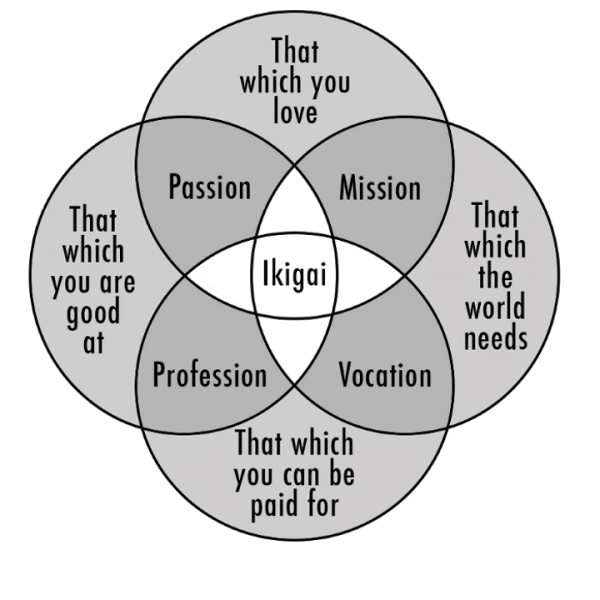You've decided you want to have your own business, but you still don't have an idea that seems right for you. In order to identify it you will need to study and learn. The important thing is to make a habit of exploring trends or changes in people's behavior and the products they use.

How do you find a business idea? Will you be successful only if it related to something you are passionate about or your professional experience? Are there any "lines of business" which are considered more suitable for setting up a business? There is such a thing as a "native inclination" for entrepreneurship? Yes, we know, many questions arise when it comes to business ideas, and most myths about entrepreneurship are related to the stage called "idea formation".
Where do you start from?
Not all successful businesses came up with a product or service that radically changed the world. Some of them came up with a new business model for something that already existed (the famous example of Netflix versus Blockbuster) . Others have been successful because they identified a need and came up with a solution for it. So not all new businesses have this product innovation component.
Furthermore, innovation can take many forms, one of which is the identification of a need that can be met better than it is currently met by the existing solutions. An eloquent example in this case is Uber , which used an already existing service. So not all new businesses have this product innovation component.
Moreover, in The Lean Startup, Eric Ries says that entrepreneurship is to a very large extent "an exercise of institutional development". In other words, a successful business has a solid, healthy and clear structure (and this is also visible at the level of the teams and the way they coordinate). Therefore, everything related to these aspects influences the success of the business, regardless of how good the initial idea is.
And even if the "perfect recipe" for a business idea does not exist, what they all have in common is the existence of a need on the market (one that is already noticeable or that is expected to become a need of a group of customers).
Here are some things to look for if you want to find the right idea for you.
1. Follow the global and local trends
Entrepreneurship is also about the ability to anticipate certain changes that generate new needs or problems. That's why it helps to stay up-to-date with the trends of your industries of interest and learn about the economy in general. There are various periodic reports that come with new insights of niche areas or general trends that you need to know about and for which you can anticipate adjacent products or services.
One of them is JWTIntelligence or Deloitte Business Trends .
2. Get inspired by other entrepreneurs’ stories
By reading or listening to them speak about their journey, you will be able to identify the mindset that helped them succeed, the key lessons they learned or how they found their own business ideas. You can also use their experience to outline your own business model, but please bear in mind that you cannot completely replicate a successful business, especially when you adapt it to the local market. As we were saying before, success often depends on the way you build and run your business, not just on the business idea.
Visit our interviews section to see how other Romanian entrepreneurs have succeeded!
3. Carefully look at the products or services you use
-
Think about the services or products you use.
-
Do they fully cover your needs?
-
Do you think you could improve or optimize them in any way? What were the contexts in which you thought "this could be done better"?
-
Is there anything that could make people's lives easier or help them save a lot of time? You can make a list of possible improvements you would make to them and come back to it periodically.
4. Analyze what you like to do
Even though this is not a general rule, many entrepreneurs have turned their passions into businesses. Are you wondering how they managed to do this? Well, it was because they knew in detail the respective fields of business and were genuinely interested and curious about everything related to them. From music festivals, to coffee, there are a lot of similar examples on the local market as well.
So, take a closer look at the things you enjoy doing most during your day-to-day work. Is there any other way in which you could use your skills or experience? Where else would they be needed?
The next step is to make a list of all of them and start imagining what a business where they would be the basis would look like.
5. Detail the ideas you have as much as possible
Periodically write down all the business ideas you have, without excluding the ones that seem, at first glance, less viable. If you come back to them from time to time, you can improve them or notice a wider category where new products or services are needed.
Don't forget to analyze the specifics of the culture you are in: do you notice patterns of behavior or perceptions regarding certain categories of consumption? Which products or services failed and which were successful? What do the businesses in the two categories have in common?
6. Learn by doing
In order to better understand how startups work, it helps to get in touch with the local ecosystem as much as possible. You can go to conferences or events dedicated to entrepreneurs,, but also participate (even if only as a spectator at first) pitching competitions. Moreover, at these events you can meet people or companies that can become your partners at some point.
7. Define your business model using the Startarium tools!
If after this exercise you have managed to come up with a business idea, the next step is to fill in the value proposition using the Value Proposition Canvas , which you can find here . This is a concise, easy-to-understand sentence that provides clarity regarding the differentiators of the product and the customer benefits.
It will help you to correctly identify the customer segments you target and the needs you cover with your product/service. It will also be helpful for outlining the most important elements of your solution that solves your customers' problems. Thirdly, it helps you achieve the product/market fit.
BONUS: Start with what gives you a sense of fulfillment
For many people it is very important for the work they do to be related to something that matters to them - you most likely feel the same way. Ikigai, a Japanese concept that represents the intersection point between what you like, what you know how to do, what you can get paid to do, and what other people need, could help you identify what is in line with your values. This is a very helpful exercise not only for entrepreneurship, but also for "mapping" the way in which your professional life aligns with the things that are important to you on a personal level.
This is explained by the diagram below.
Last but not least, after getting some ideas, discuss them with others. Especially when you're in the exploration phase, it helps to consider other perspectives. You may find that the problem you've been thinking about is one that others are facing as well. Or maybe you will find out that the solutions that have been used so far are incomplete and can be improved. In any case, don't avoid talking about it - that way, you'll gain valuable insights that will challenge your assumptions. You'll learn more about them and ways you can test them in the following chapters - now it's time to put your ideas on paper!
















